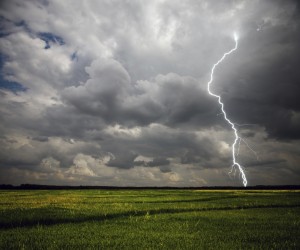 Many legal contracts contain exclusions for “Acts of God”. “Acts of God” are also a traditional defence to certain kinds of environmental offences. By this, we traditionally mean extreme weather events that are no one’s fault and that are so unusual and unpredictable that no one should be required to protect against them.
Many legal contracts contain exclusions for “Acts of God”. “Acts of God” are also a traditional defence to certain kinds of environmental offences. By this, we traditionally mean extreme weather events that are no one’s fault and that are so unusual and unpredictable that no one should be required to protect against them.
How will this defence fare in an era of climate change, now that extreme weather is both more common and more caused by human activity? In one Quebec case this year, Tremblay c. Charlevoix-Est, 2008 QCCS 1491 (Que. C.S.), an inn at the intersection of two rivers was destroyed by a massive flood. During a severe summer storm, the water rose two metres in minutes, smashing in the doors with huge rocks more than a meter in diameter. The inn was fully occupied, and the occupants were barely able to escape.
The innkeepers sued their municipality, alleging that it had failed to properly maintain one of the adjacent rivers. The municipality defended, on the grounds that the flood was “diluvian”, like Noah’s flood, an Act of God far beyond their control or responsibility.The municipality of Charlevoix East proved that, by current standards, this was a more than “1 in 100-year storm” (a type of storm we now see with increasing frequency). Nevertheless, the municipality was held liable. The river was blocked with beaver dams, close to where it was narrowed by a municipal bridge, and it was therefore foreseeable that any severe storm would cause flooding. While the municipality was not required (or legally permitted) to exterminate all beavers in the area, neither was it permitted to simply ignore the risk of flooding.
As a result, the inn owners were awarded $450,000, plus legal costs. The decision is under appeal.
The more foreseeable extreme floods become, the easier it will be for judges to impose liability upon municipalities and other governments, for failing to take effective action to manage their adverse effects. And the more government reports (such as NRCan’s Impact and Adaptation) predict extreme events, the more judges will find them to be “foreseeable”. For legal purposes, foreseeable events should no longer qualify as “Acts of God”, and this could have surprising effects for many lawyers and their clients.
